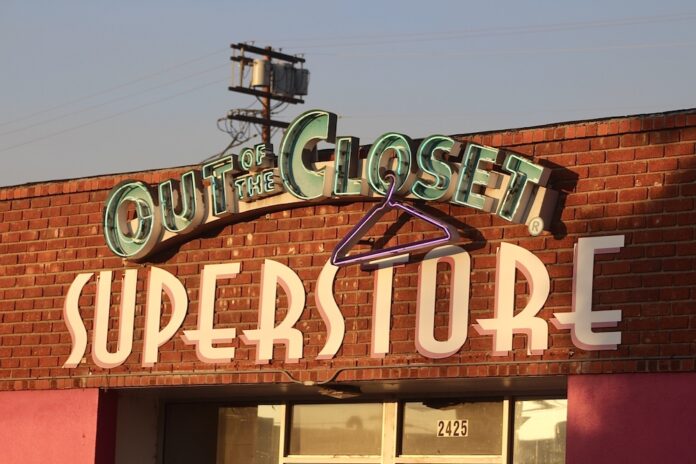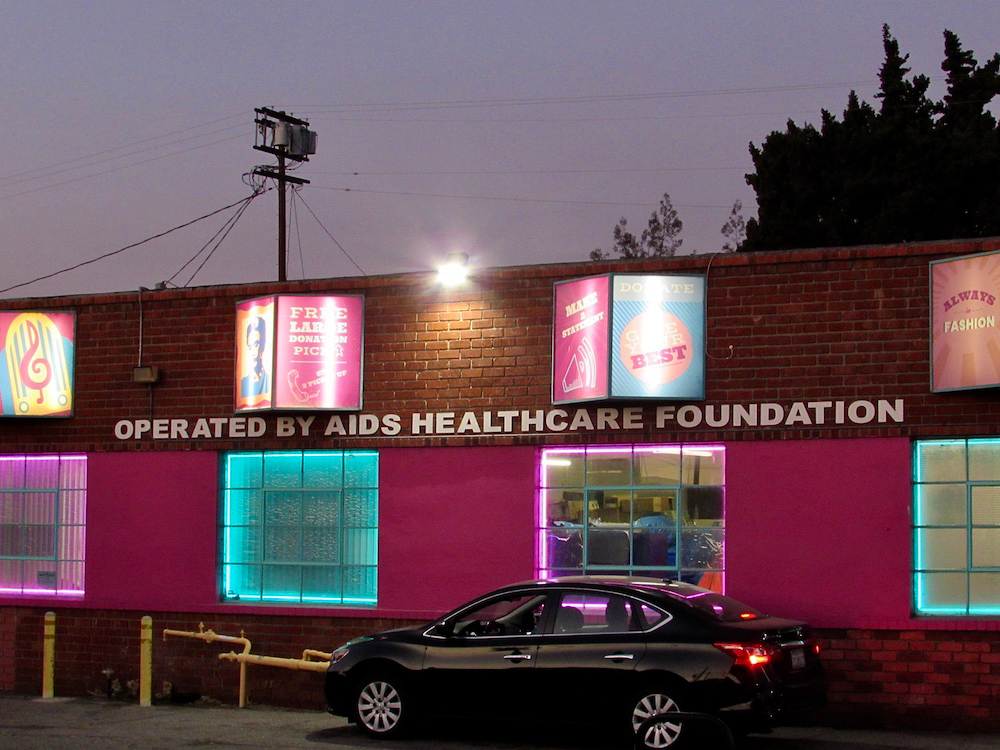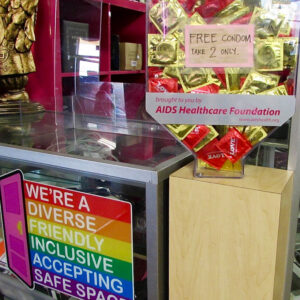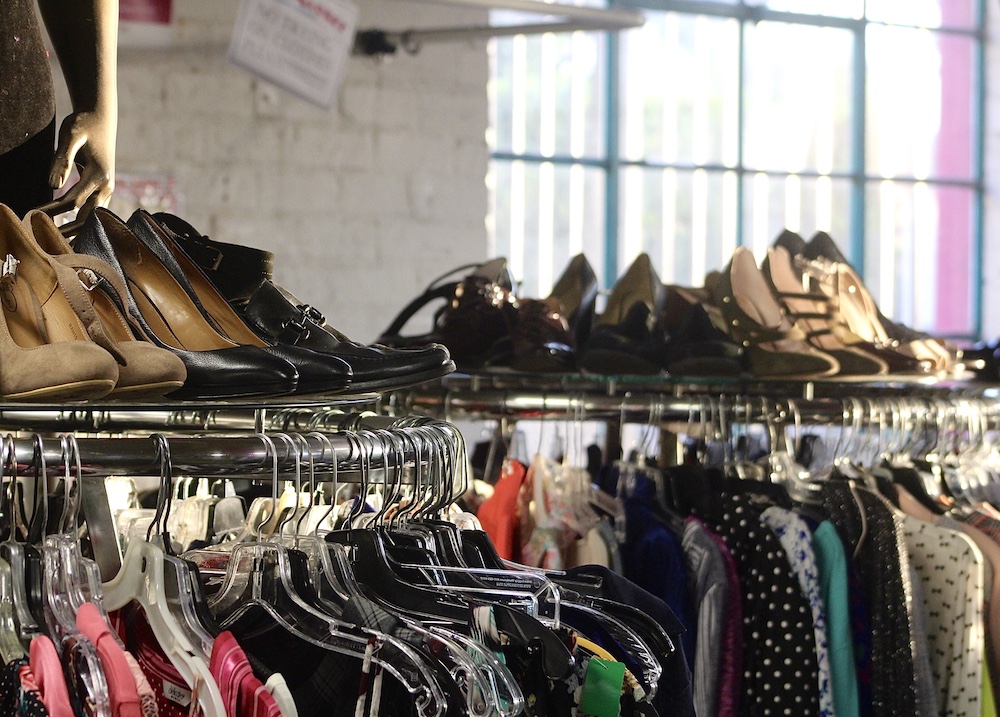
With its bright pink exteriors and neon signage, Out of the Closet thrift shops attract customers with their flashy designs and campy aesthetics, but more than that, the chain funds and provides resources for LGBTQ+ people. For customers like Talia Weinreb (junior), the mission is as important as the inventory.
“As a queer person, there’s just always that sense of familiarity,” Weinreb said. “You know that you can go in there and not necessarily be judged if you’re a woman or trans and want to buy clothes that maybe don’t look like they would fit the gender that people assume.”
According to their website, the chain is owned by the global nonprofit AIDS Healthcare Foundation (AHF) and 96 cents of every dollar goes to AHF’s HIV/AIDS programs and housing services, on-site pharmacies and free HIV testing. The Out of the Closet website lists 22 stores in the U.S. and five in LA County. Founded in 1987, AHF remains the largest provider of HIV/AIDS medical care in the U.S. Out of the Closet celebrated its 30th anniversary at the original Atwater location Oct. 2, 2020, according to AHF.

According to Giovanni Amezquita, manager of the Glassell Park and West Hollywood locations, Out of the Closet, like many other thrift stores, sells clothing and various items donated by the local community. People can drop off donations or call for company trucks to pick up the items.
Heather Lukes, professor of American Studies, said Out of the Closet is a powerful symbol in the community as a pro-LGBTQ+ space.
“If there’s an Out of the Closet in a neighborhood, I feel safe,” Lukes said. “It can be as simple as that.”
According to Lukes, Out of the Closet shops are significant because subcultures like the LGBTQ+ community have historically signaled their presence through clothing.
“You know each other on the street by the way that you dress, and this is famously linked to the gaydar,” Lukes said. “And there is a sense that subcultures want to signal to each other. So the fact that it’s a thrift store that’s mostly selling clothes links to a deep history of gay style that’s changed a lot over the years.”

Amezquita said people often shop at Out of the Closet to support the company’s cause.
“A lot of people say, ‘I like to donate to you guys because you really help people,'” Amezquita said.
According to the AHF website, counselors trained and certified in HIV testing administer free, confidential HIV tests at many Out of the Closet stores. Tests take twenty minutes or less and individuals can receive their results before they leave.
Weinreb said they have taken advantage of Atwater’s HIV testing services before.
“I’ve also been there because they have free HIV testing, so that’s cool and convenient, and it’s very fast and very nice,” Weinreb said.
Lukes said in the context of the HIV/AIDS epidemic, the AHF is an example of communities filling in for government inaction.
“During the 80s, the federal government was really ignoring AIDS, and trying to sort of make it go away, kind of siloing it as a problem that was not relevant to the main public because it was primarily affecting gay men, drug users, etc.,” Lukes said. “So people really organized themselves. The AIDS Health Foundation is one of those venerable organizations that was about doing it yourself.”
Originally established as the AIDS Hospice Foundation in 1987, the AHF opened the Chris Brownlie Hospice in 1988 as the first licensed hospice in LA for people with AIDS, according to their website. By 1990, the AHF realized that there was a greater need for affordable, specialized medical care and rebranded as the AIDS Healthcare Foundation, according to the website. Amezquita said the organization also became more focused on the issue of houselessness as treatments for HIV became available and there was less of a need for hospices.
Lukes said she supports the AHF’s focus on health and social services for those who need it most.
“I think the organic way in which the AIDS Health Foundation realized that the most vulnerable of their constituents — the ones who were most likely to find themselves infected with HIV and becoming symptomatic with AIDS — were also suffering houselessness problems means that they meet the problem where it is,” Lukes said.

Charlotte Cattaneo (sophomore) said she felt compelled to purchase something at the Atwater location to support Out of the Closet’s nonprofit work.
“Every time that I need to get something, I look very actively for the most sustainable, the most ethical, least [environmentally] impactful way to choose something, so I really enjoyed going to this store that had an additional layer of helping a community,” Cattaneo said.
![]()






























